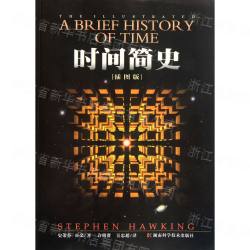-
内容大纲
本书可以用于量子场论的研究生入门课程或高级本科课程之中。第1卷介绍了经典场和典范量化方法,以便为专注于凝聚态物理学的学生使用的语言和形式论搭建一座桥梁。第2卷以第1卷所学内容为基础,但重新使用了现代路径积分形式,重点关注量子电动力学和色动力学的应用。第3卷继续讨论粒子物理现象学、弱相互作用、希格斯机制和有限温度场论的应用。全书分为5章,具体内容包含QCD现象学、弱相互作用、电子中微子散射与电反中微子散射、具有局部规范对称性的大规范场、有限温度量子场论的基础、标量场论热力学的微扰展开、QED和QCD的硬热圈等相关内容。 -
作者介绍
-
目录
Preface
Acknowledgements
Author biography
Units and conventions
1 QCD phenomenology
1.1 Electron-muon scattering
1.2 Form factors
1.3 Elastic electron-proton scattering and the proton form factors
1.4 Inelastic electron-proton scattering
1.5 The parton model and Bjorken scaling
1.6 Valence partons and sea partons
1.7 Beyond the naive parton model
1.7.1 Gluon emission cross section
1.7.2 Small-angle approximation
1.7.3 Embedding γ*-parton scattering in DIS
1.8 DGLAP evolution
1.9 Hadron production in e*e- collisions
1.10 Fragmentation functions
1.11 Solution of the DGLAP equations using Mellin moments
1.12 Drell-Yan scattering
References
2 Weak interactions
2.1 Early models of the weak interaction
2.2 Muon decay
2.3 Charged pion decay
2.4 Electron-neutrino and electron-antineutrino scattering
2.5 Neutrino-quark scattering
2.5.1 Charge raising current
2.5.2 Charge lowering current
2.5.3 Differential cross section
2.5.4 Embedding
2.6 Weak neutral currents
2.7 The Cabibbo angle and the CKM matrix
2.7.1 The Cabibbo-Kobayashi-Maskawa (CKM) matrix
References
3 Electroweak unification and the Higgs mechanism
3.1 Electroweak Feynman rules
3.2 Massive gauge fields with local gauge symmetry
3.2.1 Spontaneous symmetry breaking
3.2.2 Breaking of a continuous local symmetry
3.3 Gauge boson masses in SU(2)L X U(1)γ
3.3.1 The resulting particle spectrum
3.3.2 Fermion masses
3.4 The discovery of the Higgs boson
3.4.1 The H →γγ decay channel
3.4.2 The H →ZZ → 41 decay channel
3.4.3 The H → τ+τ- decay channel
3.4.4 Other decay channels and the nature of the Higgs
References
4 Basics of f'mite temperature quantum field theory
4.1 Partition function for a quantum harmonic oscillator
4.1.1 The QHO canonical partition function in the energy basis
4.1.2 Computing the QHO partition function using the path integral formalism
4.2 The partition function for a free scalar field theory
4.2.1 Fourier representation of the fields
4.2.2 Tricks for evaluating sum-integrals
4.3 Free scalar thermodynamics
4.3.1 Low temperature limit
4.3.2 High-temperature limit
4.4 The need for resummation
4.5 Perturbative expansion of thermodynamics for a scalar field theory
4.5.1 One loop
4.5.2 Two loops
4.5.3 Three loops
4.5.4 Pressure through g5
4.6 Screened perturbation theory
4.6.1 One-loop contribution
4.6.2 Two-loop contribution
4.6.3 Three-loop contribution
4.6.4 Pressure to three loops
4.6.5 Mass prescription
4.6.6 The tadpole mass prescription
4.6.7 Three-loop SPT Pressure
References
5 Hard-thermal-loops for QED and QCD
5.1 Photon polarization tensor
5.1.1 Generalization to d-dimensions
5.1.2 The HTL polarization tensor
5.1.3 Generalization to QCD
5.2 Fermionic self-energy
5.3 Collective modes
5.3.1 Gluon modes
5.3.2 Quark modes
5.3.3 Collective modes in an isotropic QGP
5.3.4 Gluon modes
5.3.5 Landau damping
5.3.6 Quark modes
5.4 Hard-thermal-loop effective action
5.4.1 Minkowski-space HTL gluon propagator
5.4.2 Minkowski-space HTL quark propagator
5.4.3 Three-gluon vertex
5.4.4 Four-gluon vertex
5.4.5 Quark-gluon three-vertex
5.4.6 Quark-gluon four-vertex
5.4.7 Hard thermal loop effective Lagrangian
5.4.8 Euclidean space HTL effective Lagrangian and vertex functions
5.5 Hard-thermal-loop resummed thermodynamics
5.5.1 Contributions to the HTLpt thermodynamic potential through NNLO
5.5.2 NNLO HTLpt thermodynamic potential
5.5.3 NNLO result for equal chemical potentials
5.5.4 NNLO result--gengral case
5.5.5 Mass prescription
5.5.6 Thermodynamic functions and susceptibilities
5.5.7 Quark number susceptibilities
5.5.8 Baryon number susceptibilities
References
编辑手记
同类热销排行榜
- 故宫日历(公历2017年)(精)26.4
- 时间简史(插图版)18
- 工程数学线性代数(第6版十二五普通高等教育本科国家级规划教材)7.76
- 昆虫记(精)/经典译林8.72
- 数控铣床综合实训教程19.2
- 昆虫记(插图典藏本)(精)11.2
- 化工制图习题集(普通高等教育规划教材)7.2
- 化工制图(普通高等教育规划教材)15.8
- 生命急救技能14
- 时间简史(普及版)(精)15.2
推荐书目
-

孩子你慢慢来/人生三书 华人世界率性犀利的一枝笔,龙应台独家授权《孩子你慢慢来》20周年经典新版。她的《...
-

时间简史(插图版) 相对论、黑洞、弯曲空间……这些词给我们的感觉是艰深、晦涩、难以理解而且与我们的...
-

本质(精) 改革开放40年,恰如一部四部曲的年代大戏。技术突变、产品迭代、产业升级、资本对接...

 [
[
